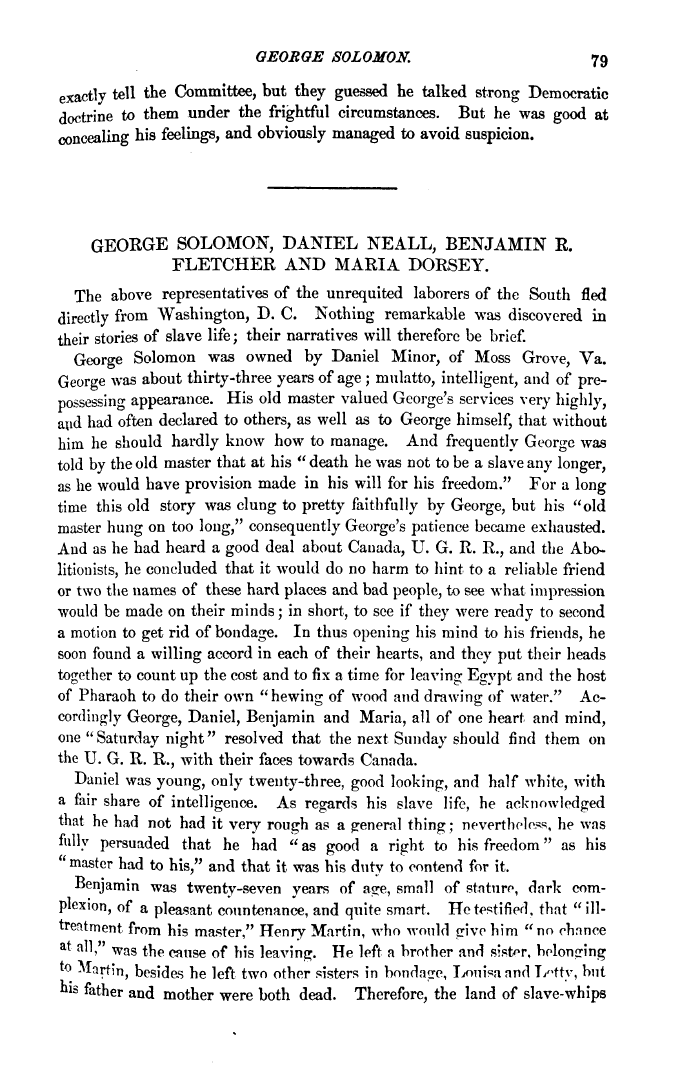 |
||||
 |
||||
| GEORGE SOLOMON. 79 exactly tell the Committee, but they guessed he talked strong Democratic doctrine to them under the frightful circumstances. But he was good at concealing his feelings, and obviously managed to avoid suspicion. GEORGE SOLOMON, DANIEL NEALL, BENJAMIN R. FLETCHER AND MARIA DORSET. The above representatives of the unrequited laborers of the South fled directly from Washington, D. C. Nothing remarkable was discovered in their stories of slave life; their narratives will therefore be brief. George Solomon was owned by Daniel Minor, of Moss Grove, Va. George was about thirty-three years of age ; mulatto, intelligent, and of prepossessing appearance. His old master valued George's services very highly, aud had often declared to others, as well as to George himself, that without him he should hardly know how to manage. And frequently George was told by the old master that at his " death he was not to be a slave any longer, as lie would have provision made in his will for his freedom." For a long time this old story was clung to pretty faithfully by George, but his "old master hung on too long," consequently George's patience became exhausted. And as he had heard a good deal about Canada, U. G. R. R., and the Abolitionists, he concluded that it would do no harm to hint to a reliable friend or two the names of these hard places and bad people, to see what impression would be made on their minds; in short, to see if they were ready to second a motion to get rid of bondage. In thus opening his mind to his friends, he soon found a willing accord in each of their hearts, and they put their heads together to count up the cost and to fix a time for leaving Egypt and the host of Pharaoh to do their own "hewing of wood and drawing of water." Accordingly George, Daniel, Benjamin and Maria, all of one heart and mind, one uSaturday night" resolved that the next Sunday should find them on the U. G. R. R., with their faces towards Canada. Daniel was young, only twenty-three, good looking, and half white, with a fair share of intelligence. As regards his slave life, he acknowledged that he had not had it very rough as a general thing; nevertheless, he was fully persuaded that he had " as good a right to his freedom" as his " master had to his," and that it was his duty to contend for it. Benjamin was twenty-seven years of ao;e, small of stntnrr, dark com- 1 • * ** plexion, of a pleasant countenance, and quite smart. He testified, that "ill-treatment from his master," Henry Martin, M'ho -would give him "no ohnnce at all," was the cause of his leaving. He left a brother and sister, bolon.cring to Martin, besides he left two other sisters in bondage, I>ouisa nnd Lntty, but his father and mother were both dead. Therefore, the land of slave-whips |